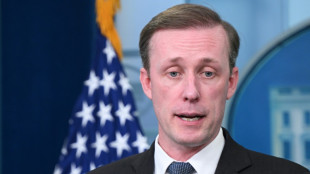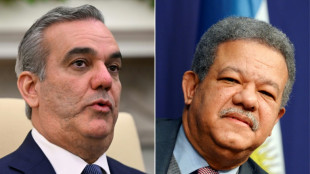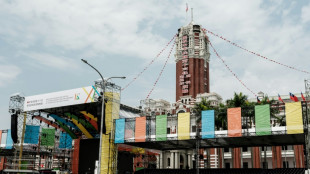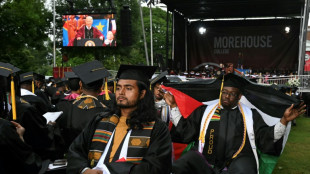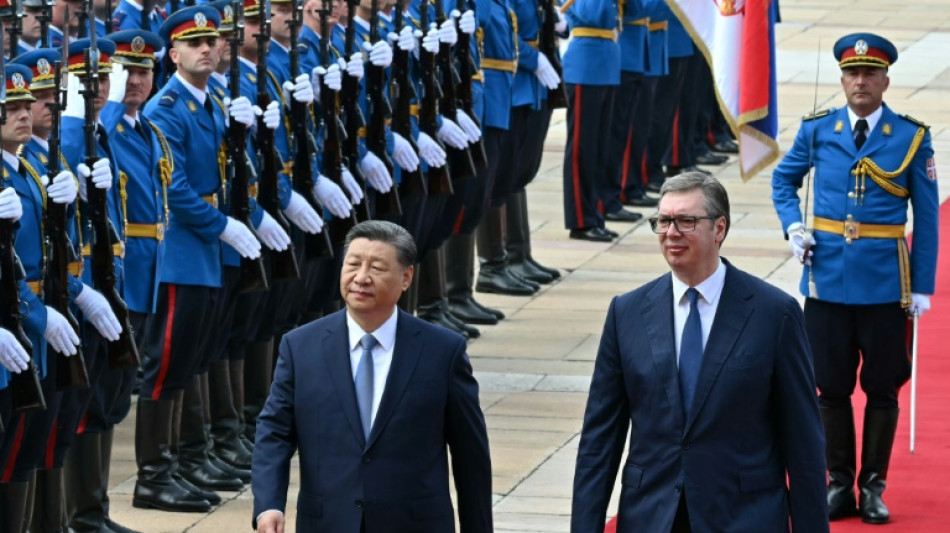

After Serbia, China's Xi arrives in Hungary to tighten bonds
Following a visit to Serbia, Chinese President Xi Jinping arrived in Budapest on Wednesday in the last leg of his European tour aimed at strengthening already flourishing ties between Beijing and its closest EU ally.
Xi's three-day visit to Hungary marks 75 years of diplomatic relations between the two countries, with the Chinese leader expected to attend a state dinner with Hungarian Prime Minister Viktor Orban later on Wednesday.
He began his European trip in France, a visit that was cordial but also highlighted tensions between Beijing and the EU over the war in Ukraine and global trade.
Earlier on Wednesday, Xi wrapped up his visit in Serbia, which like Hungary has close ties to both Russia and China.
China has poured billions into Serbia and neighbouring Balkan countries, particularly into mining and manufacturing, and last year Beijing and Belgrade signed a free-trade agreement.
Serbia's President Aleksandar Vucic greeted Xi and his wife Peng Liyuan on a red carpet outside the main government offices in Belgrade on Wednesday.
The Chinese leader was met by a gun salute before shaking hands with officials, including the prime minister and the National Bank of Serbia governor.
The two leaders waved from a balcony to several thousand people, some waving Chinese flags, as Vucic called Xi a "friend of Serbia".
"Such respect and love as he will find here in our Serbia, he will not find anywhere else," Vucic added.
He also told the crowd as Xi applauded: "We have a clear and simple position regarding Chinese territorial integrity. Yes, Taiwan is China."
Beijing claims the self-ruled island as its own, and has not ruled out using force to bring it under Chinese control.
Xi told Vucic in opening comments that there was a "strong feeling of friendship between our two countries".
They later appeared together to sign a joint declaration, with commercial promises including the purchase of new Chinese trains, new air links, and increased Serbian imports.
- NATO bombing -
Streets in the Serbian capital were decked out with Chinese flags and posters proclaiming a "warm welcome" to "Chinese friends".
Xi's visit coincided with the 25th anniversary of the 1999 US bombing of the Chinese embassy in Belgrade, which killed three people.
"Do not forget that our Chinese friends were with us 25 years ago when this country was being demolished and bombed," Vucic told the crowds Wednesday.
The embassy was hit during a months-long, US-led NATO campaign targeting Serbian security forces who were at war with ethnic-Albanian insurgents in Kosovo.
The United States later apologised, saying outdated maps had led the pilot to strike the wrong target.
On Tuesday, Xi wrote in the Serbian daily Politika that NATO had "flagrantly bombed the Chinese embassy", warning that China would "never allow such tragic history to repeat itself".
Serbia has repeatedly supported China's claims over Taiwan and in turn, Beijing has long backed Serbia's territorial claims over the breakaway province of Kosovo.
Along with Russia, China has prevented Kosovo's recognition at the United Nations.
Xi called for the two countries to "firmly support each other's core interests".
"China supports Serbia in upholding its policy of acting independently... (and) its efforts to safeguard national sovereignty and territorial integrity on the Kosovo issue," he said Wednesday.
- Ukraine fears -
"For Serbia, this is without a doubt one of the most significant visits," Marko Tmusic, a political sciences professor at the University of Belgrade, told AFP.
In Belgrade, many welcomed Xi's visit.
"I think it's an excellent thing, this visit from the president of one of the most powerful countries in the world," 67-year-old Stojan Vidovic, a retiree, told AFP.
In France, Xi met President Emmanuel Macron and EU Commission President Ursula von der Leyen who urged him not to allow the export of technology that could be used by Russia in Ukraine and to do all it could to end the war.
Xi warned the West not to "smear" China over the conflict and hit back at accusations that Chinese overcapacity was causing global trade imbalances.
Some European allies are concerned that while officially neutral over the Ukraine conflict, China is essentially backing Russia, which is using Chinese machine tools in arms production.
Xi will hold talks with Orban, who has bucked the European Union's official position to "de-risk" relations with China.
B.Foster--MC-UK

